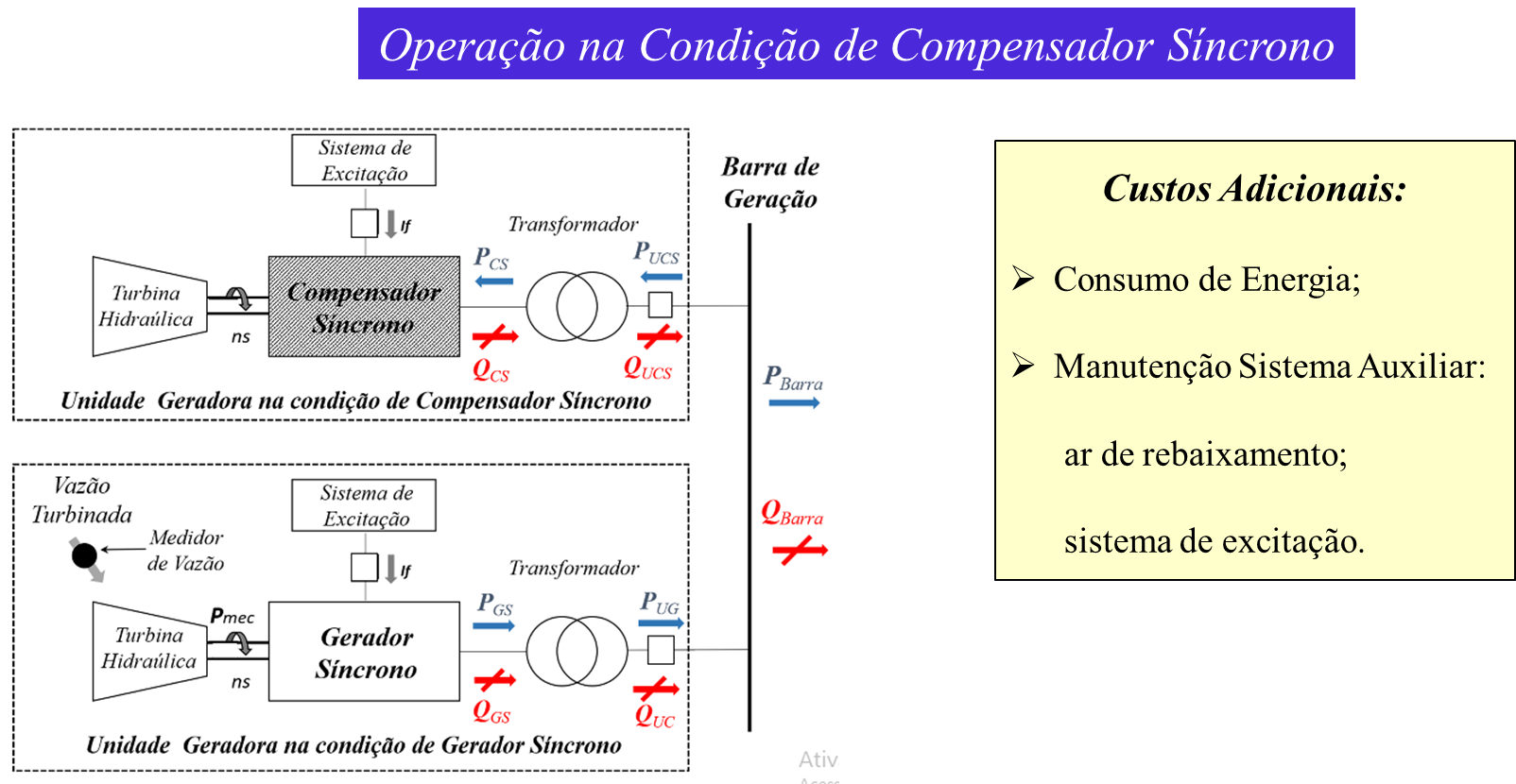Analysis of Turbine Flow through Synchronous Generators to Supply Reactive Energy Generation in the Brazilian Electrical System
Keywords:
Losses, Reactive Energy, Synchronous Compensator, Synchronous Generator, Turbine FlowAbstract
This paper presents the losses, maintenance and variation of the turbine flow in the hydroelectric plants for the generation of reactive energy, in the condition of synchronous generator or synchronous compensator. The study was carried out in the Brazilian Electrical System, which has continental dimensions with long transmission lines, regions with concentrated loads and its profile varies in the levels of: light, medium and heavy, requiring control of the voltage and loading. The remuneration for the generation of reactive energy by synchronous generators was detailed in accordance with current legislation. As an application example, two hydroelectric plants were analyzed, which normally generate reactive energy for the electrical system. The first is the Henry Borden Hydroelectric Power Plant, located within a large consumer center in the metropolitan region of the City of São Paulo, which due to systemic needs; its generating units generate reactive energy. The other is the Pedreira Pumping Plant, which has pumping units powered by synchronous machines connected to the electrical system through 88 kV transmission lines. The result of the study identifies the losses and the increase in turbine flow required for the provision of reactive power generation by synchronous generators, and can serve as a reference for future planning and decision-making studies in different electricity markets.
Downloads


